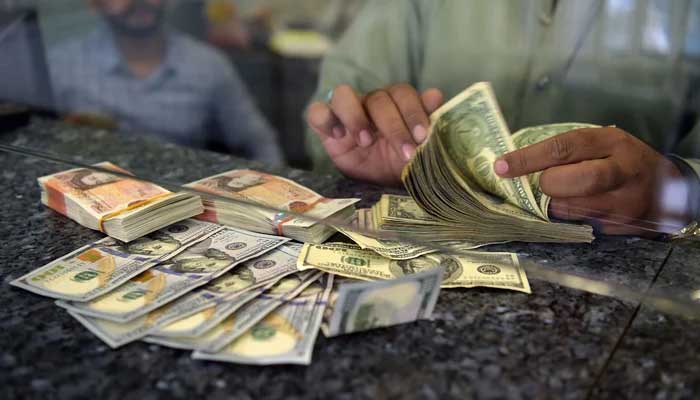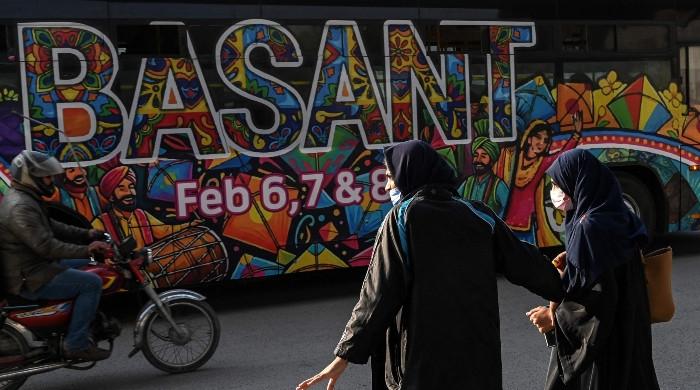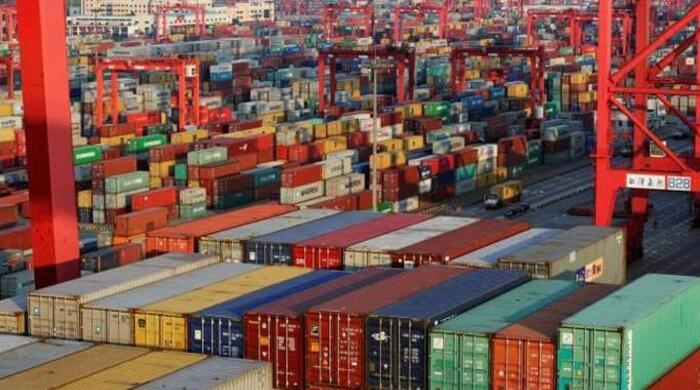Pakistan's economic security
Productive and prosperous economic growth will not be seen if we stay ensnared in the IMF system
December 10, 2022

Pakistan is currently teetering on the brink of economic collapse. The recent floods have only added to this dire situation, and the loss to our economy has been unprecedented.
We can avoid this harsh truth as much as we want, but the fact cannot be denied that without strong, drastic measures Pakistan will have no choice but to default.
It is imperative that the government impose an economic emergency. This should be done with the consensus of all stakeholders. It is also extremely important to design and implement economic policies that range from short, mid to long term. The goal should be to implement policies that can carry the country forward. These policies need to be stand-alone, not affiliated with any political party, and should be applicable to all governments, regardless of affiliations. If need be, Pakistan should pass a constitutional amendment which enables it to enforce this policy without political advantage seeking.
The PDM government effectively discouraged luxury imports in order to enhance exports; however, this policy seems to be tapering off gradually. Export promotion needs to be the foundation of our economic policy and promoting industry and factories should be emphasized. Without industrial production, the economy cannot thrive.
It is also imperative to highlight human security. Pakistan cannot thrive if our focus does not shift to effectively prioritizing human security. This will involve synchronization between our economic, trade, foreign, food, security, export, import, industrial and climate change policies. After the National Security Policy Document of 2021, we saw a shift towards human security. And it is crucial this remains the cornerstone of any security policies going forward. Without human security, the social fabric will crumble, and with it, any chances of a stable economy crumble too.
The country needs a proper system for monitoring and evaluation. This system needs to oversee the working and harmonization of these policies and also amend and implement adjustments and changes whenever necessary.
Another area where there seems to be no harmony is in our commercial diplomacy. It is necessary that Pakistan should have a well-researched and well-thought-out commercial diplomacy policy. This policy needs to be bolstered by related institutions and qualified and trained people. Although it is a utopian idea, the well-being of the country needs to come above petty alliances and nepotism. People selected for these posts must be trained and capable. Their primary goal should be to enhance bilateral trade and exports, bringing in foreign direct investment and creating and strengthening ties with neighbouring as well as other relevant countries around the world.
Keeping women out of the economy has a massively damaging impact as they comprise more than half of the population. For economic growth, it is imperative that all citizens, including urban and rural women, have access to opportunities for entrepreneurship, business ownership, and capital. Keeping such a large chunk of the population out of the economy has a debilitating impact on the GDP of any country.
The government should devise strategies to prevent savings from only being invested in the real estate market and to move them towards economic areas that may be more productive or to long-term investment funds. In order to do this, it will be an uphill task to build people’s trust in the economy. The Extended Fund Facility (EFF) and the International Monetary Fund (IMF) cannot be the only fallback to our economy. Productive and prosperous economic growth will not be seen if we stay ensnared in the IMF system.
Pakistan needs to move towards the economic security goals of human resource development, poverty alleviation, and most importantly, political stability. The past year, specifically, has demonstrated how political instability and bad economic policies can bring a country to the doorstep of default.
Investing in Pakistan can be an arduous and complicated process for most foreign investors. The risks of an unstable economy also deter them from bringing their capital into the country. It is, therefore, imperative to have an investor-friendly system in order to encourage FDI.
The Board of Investment (BoI) needs to work on promoting investment by simplifying the steps and do its utmost to move upward on the ease of doing business index. For this, the BoI will have to be restructured with a skilled management that can help Pakistan move forward.
The writer is a research analyst, and heads the Afghanistan Program at the Institute of Regional Studies.











